What's crazy to me is that they apparently wanted to rush it because they weren't sure if they'd get another expansion to tell it or whatever their excuse was.
Yet here we are with rumors that Yawntrail will be a filler expansion.
We wouldn't need filler expansion if you'd just done 6.0 as a real, not rushed, bridge the story properly expansion...
-
10-11-2023 05:11 AM #8701Player
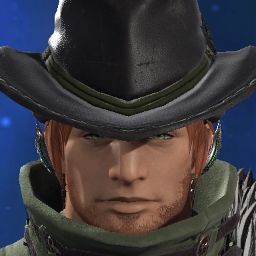
- Join Date
- May 2014
- Location
- The Interdimensional Rift
- Posts
- 3,600
- Character
- Vicious Zvahl
- World
- Excalibur
- Main Class
- Machinist Lv 100
(8)
(Signature portrait by Amaipetisu)
"I thought that my invincible power would hold the world captive, leaving me in a freedom undisturbed. Thus night and day I worked at the chain with huge fires and cruel hard strokes. When at last the work was done and the links were complete and unbreakable, I found that it held me in its grip." - Rabindranath Tagore
-
10-11-2023 05:19 AM #8702Player
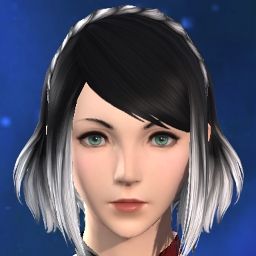
- Join Date
- May 2014
- Location
- Ul'dah
- Posts
- 771
- Character
- Lilisette Lufaise
- World
- Leviathan
- Main Class
- Red Mage Lv 100
I think they originally had it set up for 6.0 to be a garlemald expansion and exploring more of ilsabard and face off against possibly zodiark during the post patches then 7.0 focus on hydaelyn and endsinger and everything else. But they decided to wrap up the long storyline instead in endwalkers instead of continuing longer.
(4)That is when the true Vana'diel of legend will be reborn.
-
10-11-2023 05:44 AM #8703Player

- Join Date
- May 2014
- Location
- The Interdimensional Rift
- Posts
- 3,600
- Character
- Vicious Zvahl
- World
- Excalibur
- Main Class
- Machinist Lv 100
Endwalker - Premature Ejaculate: The Story
(12)
(Signature portrait by Amaipetisu)
"I thought that my invincible power would hold the world captive, leaving me in a freedom undisturbed. Thus night and day I worked at the chain with huge fires and cruel hard strokes. When at last the work was done and the links were complete and unbreakable, I found that it held me in its grip." - Rabindranath Tagore
-
10-11-2023 08:05 AM #8704Player
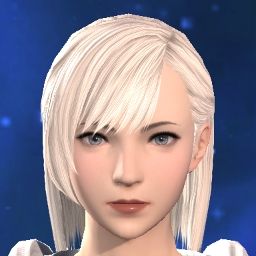
- Join Date
- Jul 2015
- Posts
- 1,220
- Character
- Ashe Sinclair
- World
- Phoenix
- Main Class
- Thaumaturge Lv 60
I feel like those days where they really pushed that honest sort of communication - or open communication at all, really - with the fans are slowly coming to an end. They put the effort in when they needed to save the game from the mess they got themselves in, but now they've achieved a reasonable degree of success they're defaulting to the usual mega gaming corporation behaviour that I suspect will continue unless they dig themselves into a hole again - and now they've managed to pull in the casual RP/ modder/ glamour obsessed communities looking for a new social sim, so long as they keep chucking overpriced outfits on the MS, inserting cyberpunk and modern glams into the game's gear and turning their head the other way at the venue spam, that's not going to be happening anytime soon. Keeping expectations low is probably for the best.
I kind of wonder how the devs feel about it, though, and where these decisions actually come from.(14)
-
10-11-2023 08:22 AM #8705Player
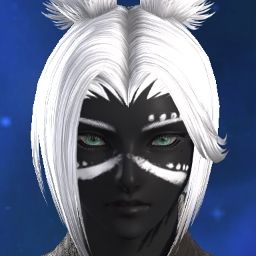
- Join Date
- Sep 2015
- Location
- Golmore
- Posts
- 1,590
- Character
- Elja Djt-dvre
- World
- Sagittarius
- Main Class
- Black Mage Lv 100
I wouldn't be surprised if the decrease in open communication comes partially from the playerbase becoming as big as it did. It's not a phenomenon unique to game development - it's something you can see in daily life in different communities as well, albeit on a smaller scale (something like discord servers centered around some topic, for example).
It's one thing to communicate with smaller amount of people that mostly share the same view on the topic, and it's another thing to communicate with a community that bloated in size and, as result, has a huge variety of opinions that are objectively impossible to satisfy simultaneously. And wherever creators and members of said communities like it or not, at some point those who're in charge have to somewhat distance themselves and decide which path they're going to take in terms of project evolution (which will cause some people to like and some people to dislike those decisions).(9)
-
10-11-2023 08:29 AM #8706Player

- Join Date
- Sep 2012
- Location
- Uldah
- Posts
- 242
- Character
- Rieze Crestfall
- World
- Tonberry
- Main Class
- Warrior Lv 90
Endwalker is not a bad story but not great either. Most of us liked it because of Elpis and Zenos w/ WOL working together and then the 1 on 1 battle. But mostly Elpis because we see Emet back. But honestly OP is right, Zodiark was a disappointment, Ancients story felt rushed and specially Venat, I still can't accept that we are all led to believe half of the planets population (or at least whats left of it) prayed for Zodiark and the other half for Hydaelyn. But we only saw a few praying and none for Venat's side. So it seems to be only her decision. And how can she be all that powerful to become that super strong primal? They said because her will is so strong that her prayers manifested itself. But why does on Zodiark's side they need a lot of people? For someone praying for the salvation in a dying world, you would think their prayers are stronger in numbers? Anyway I am just waiting for DT and hoping for the best. I still feel that overall EW is a disappointment in all aspect and it is because of FF16, they rushed things in FF14 because they are doing another game. For now FF14 ranking for me is this: Shb > HW > EW > SB > ARR & 1.0.
(0)ここにリンクがあります。
-
10-11-2023 08:33 AM #8707Player

- Join Date
- Sep 2015
- Location
- Golmore
- Posts
- 1,590
- Character
- Elja Djt-dvre
- World
- Sagittarius
- Main Class
- Black Mage Lv 100
To add to this, I had a somewhat similar experience as a moderator in a discord server that grew in size over time, from like 10 users to thousands. It wasn't a particularly nice feeling to make decisions that would inevitably alienate some portion of the community, but they had to be done to keep the project going at all, because if you try please everyone at once - you end up with pleasing no one at all and potentially ruining the project entirely. The only thing you can really do in such a situation is to try to stick to a path that you feel is right for your project.
So personally here, so long as developers themselves are happy with what they're doing - I'd say they're on the right path. Even if some of those decisions feel weird to me at times.(2)
-
10-11-2023 09:13 AM #8708Player

- Join Date
- Jul 2015
- Posts
- 1,220
- Character
- Ashe Sinclair
- World
- Phoenix
- Main Class
- Thaumaturge Lv 60
It's a tricky subject. That's undeniably a part of it, for sure, but it's somewhat sanitising the truth; that invariably the path chosen will be the one that better appeals to the mass market in order to garner the most profit, and in so doing alienate older players who have enjoyed and supported the game for the majority of its life until that point. It might be the natural road to take - or at least the expected one, so far as corporations are concerned - but it's not necessarily a good one. I don't really think comparing a discord trying to get off the ground is exactly comparable to an established game that was already successful in its own right, either. There is no do or die here.
What we perceive to be the "right path" is subjective, of course, but I think there's a fair argument to be made against that. At this point, though, that is perhaps best left to time to either prove or disprove. After watching the game proceed in the direction it has done for the past two years, and what I've witnessed in the community, I'll be interested to see, to say the least.(5)
-
10-11-2023 10:46 AM #8709
Hm...my thoughts on some of these, because I don't disagree with you entirely on the rest (some are things we don't know the answers to, like we don't know what she DID tell the Convocation, and we only suspect what she did and did not say):
A. New life - we're shown in the short story where Emet has to kill the Phoenix (and I think an Elpis sidequest) that the Ancients didn't have the power to create life entirely. They could make a body that could live, but souls were not something they could create or destroy - or control. When they created life, sometimes a soul would come to inhabit it. The Ancients had no actual power over that, and the soul was independent of their actions. Meaning when they took those lives, they were not destroying something that was wholly their own creation. That was something that the mentioned in Elpis as well, and has somewhat...uncomfortable implications if you think about it. Imagine if you found out, for example, that the AI we're experimenting in the real world received souls once they had developed passed a certain level. Would "deleting" them still be allowable? Could they still be considered "property" of their owners? That's where we get to here, and it's philosophically uncomfortable to think about, honestly.
B. Again, there's no clarity at all that the Ancients WOULD HAVE gone after Meteon. Think back to the cutscene where Venat confronts them and tells them that their society wasn't ever perfect, it always had sorrow, but they insisted it was and had been perfect, raise their hands, and make offerings of live to get their "perfect" society back. Such people as believe their society is perfect and their god absolute would never listen to someone telling them about a threat at the edge of the universe. And even if they HAD listened, they would have insisted it was not their problem and that Zodiark would protect them. I don't see any rational for appraising that situation otherwise. So no, they would not have gone to deal with Meteon, and there's currently zero evidence that they would ever have done so at any point.
C. Sorta on the Nbirun. Keep in mind they were only saved AFTER their actions, not before them. It's unclear they would have been willing to accept the answer before the destruction of their society.
D. While you point out that not all life would be sentient, there is a lot of life that was sentient that they would not have seen as such because it was not at their level. Recall, for example, that Azem went rogue to save an island from a volcano while the Convocation was more than fine with letting everything there die. And that was a natural disaster, where here we're talking about them having made the conscious decision to cultivate and then mass murder all that life. Emet's position on the Sundered is probably very similar to how Ancient society as a whole would have viewed lesser, but still sentient, life. Regardless, though, it would still have been mass genocide.
E. The Echo didn't exist before the Sundering, so they could not have been shown things through it. The Echo in lore came into existence after the Sundering, where a lesser being with a portion of a soul of one of the Ancients who lived through the Final Days had those memories ever so slightly awakened by seeing a Starshower, specifically. This awakening to a bit of the soul's true nature is what allows all the Echo powers and protection from Tempering, even with the artificial Echo. And not all Echo powers allow walking in others' memories. The 1.0 WoL could actually interact with people in the past directly, and Krile can speak with animals through hers, for examples of other powers it grants.
F. Regardless, the scene with her talking to the crowd was meant to show that they were beyond reason. They would not have listened, no matter what she told or showed them, and they believed their world a perfect paradise and Zodiark a perfect god, so they would not have done anything about Meteon, too. That scene was meant to show how they were too far gone/too deep in their belief to accept any alternative. I think that was what that scene WAS trying to show us, though not everyone got it. Surely you've known someone in life that got so bought into something, no matter what you told them about it not being great, they wouldn't listen or would hand wave away your arguments? Basically, at that point, the Ancients had become an extremist cult. That was also displayed in the scene where she makes her arguments and they turn as one, raise their arms as one, and pray to Zodiark that they will surrender their life force to him if he will give them back their perfect world. That they were even willing to have a mass ritual suicide. I thought it was pretty clear what the scene was saying then - that they were beyond reason and beyond changing course.
G. I don't think the story showed her as some perfect person. She was a loving hero, she clearly loved people, even while Sundering, and she felt terrible for what she did. That doesn't make her PERFECT, but it does not require perfection to be a "loving hero". It only requires love (which she showed) and heroic action (in this case, self-sacrifice, which it also showed). Her long walk scene, she's beaten and battered and covered in blood, possibly not all her own. It made it pretty clear that she suffered immensely for her decisions and actions, but felt she had to take them anyway. You may disagree with that - though as I say up above, the narrative makes it pretty clear she was correct and the "what if" alternatives were not things that actually would have happened had she not Sundered them or had she come to them with everything she knew - but the narrative did make that clear in the telling. She shouldn't be painted as a villain because she wasn't a villain. She was painted in a similar light as Emet in the end, which is about right. She wasn't some cruel and heartless person who did everything for selfish gain - what makes a villain. She was a person trying to do the best she could with what she knew. And the story shows that she was ultimately right in most of what she said (and the only reason I don't say all is because the narrative does leave out some things so we don't know the rest).
I get this view that she wasn't perfect, and I agree with that view.
I don't get the argument that she was a villain. And notwithstanding that, her choices and decisions in the end were treated a lot like Emet's - as someone trying to do the best they could with what they knew who was heroic and suffered greatly for the sake of others. In the end, even Emet was treated that same way, notwithstanding being galled by it.
.
I don't think we are expected to praise her for it, nor that anyone did (in the narrative).
I think we are only shown the why so that we can understand it, and that it was the best she could do with what she knew and what resources she had to take action with.
Perfect heroes are boring. Venat isn't perfect. But she was caring and loving, and she was a hero. Just as, in his own way, Emet was. And the game in the Alpha/Omega questline even lets you, the player, personally make your own judgement on that question. Which, personally, I thought was a nice touch.
.
Oh, I should note one final line, this one from Emet-Selch in the cutscene when you summon him and Hythlodeus to help:
<looking at the WoL>
"Still, you must be commended. Our methods would not have brought mandkind this far."
In other words, he's saying the Ancients would not have made it there, even had they decided they needed to go after Meteon. So the "what if" argument of "Maybe they could have made it" is put to bed by Emet himself, who said they would not have. And if anyone WOULD know, it would be him.(0)Last edited by Renathras; 10-11-2023 at 11:01 AM. Reason: EDIT for length
-
10-11-2023 11:08 AM #8710Player

- Join Date
- Sep 2013
- Posts
- 10,051
- Character
- Matthieu Desrosiers
- World
- Cerberus
- Main Class
- Reaper Lv 90
It's a common misconception that the scene with Venat is an actual retelling of what went down but the timing doesn't fit and it's a deceptive, overly stylistic depiction of the events leading up to the Sundering. The game frequently seeks to deflect from the consequences of the Sundering by avoiding referring to it as it what it is at its core - an act of deliberate genocide and racial replacement with a dash of Dynamis focused eugenics thrown in for good measure.
The Sundered exist at the expense of the Ancients and are in no way the natural successors of Etheirys. The game simply lacks the stones to explicitly highlight that and hides it behind vague insinuations of 'love' and 'awe' aimed at the player character. Not only in regards to Venat but now with the Twelve as well. At least in Venat's case she actually interacted with the player character...if only briefly. I'm still struggling to figure out why the Twelve are so enthralled with the Sundered or downplaying the many atrocities committed in religious crusades or just life in general. It's hilarious that Yoshi-P referred to Hythlodaeus of all characters as 'scary' in a game where sexual assault, racism, war, betrayal, starvation, piracy and numerous other horrid things are common place.
This has all been discussed at length throughout this very thread, of course - and as mentioned the sources highlighting all of this are present in the video I linked a page or two back. I bring that up to spare everyone - and myself - the painstaking process of hunting down and posting the exact same sources for the hundredth time.
I'd also like to point out that both Ishikawa and Yoshi-P have both been rather weasel-worded when it comes to the situation with the Nibirun and that they were their vision for how the Ancients would 'probably' go if they didn't change at the point of time in the Final Days - it's neither stated as an absolute, and they had little reason to change because Venat failed to reveal the true picture, so blaming them for it is rather dubious as far as I'm concerned.
The story has consistently been fine with the Sundered being allowed to survive in spite of their many faults, and they're depicted as having a right to fight for that, so it's hypocritical in the extreme to say that it doesn't extend to the Ancients. A lot of Endwalker's writing directly undermines Shadowbringer's own messaging and even the patch content during this expansion cycle has failed to be consistent in terms of either messaging or morality.(6)



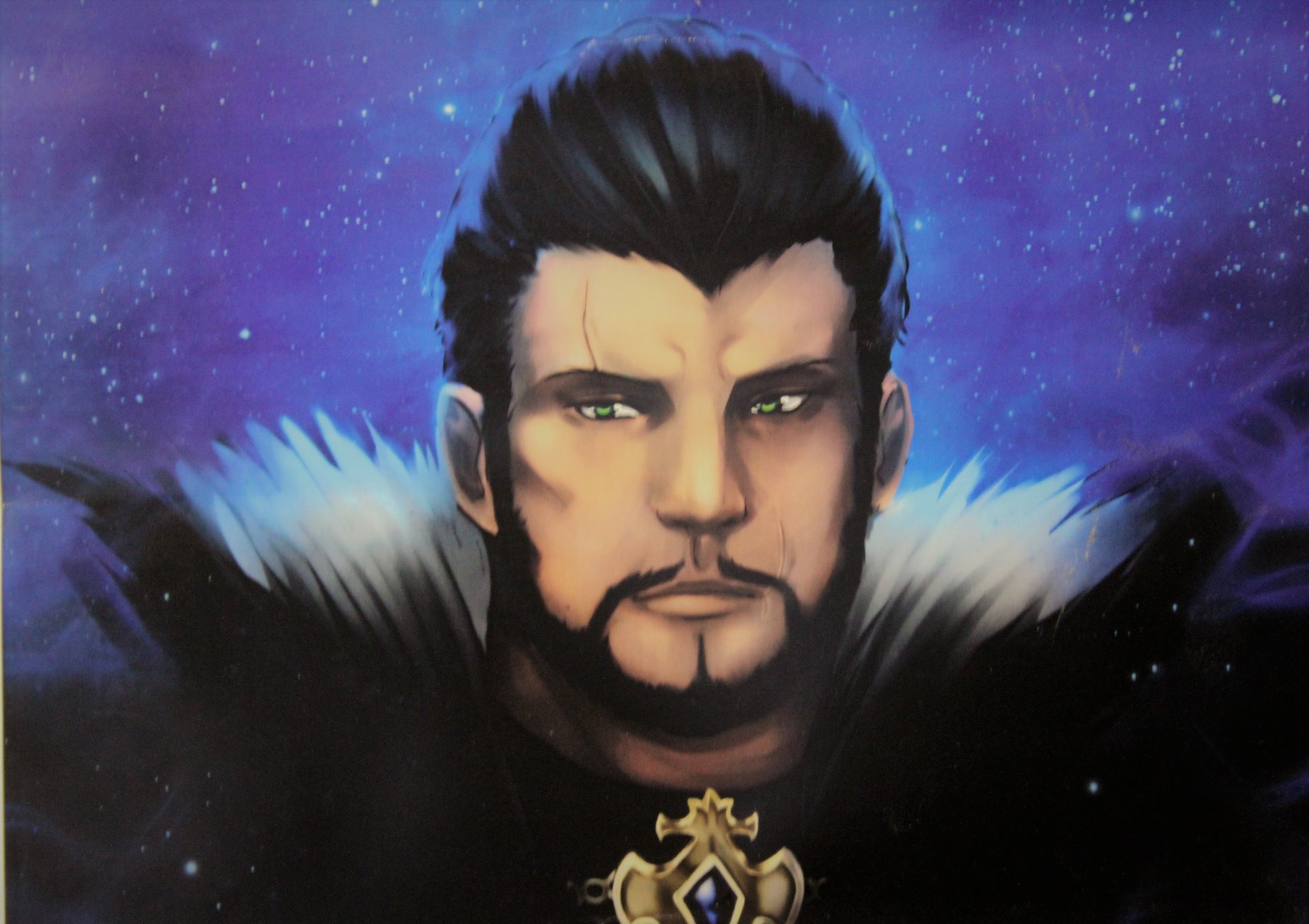
 Reply With Quote
Reply With Quote









